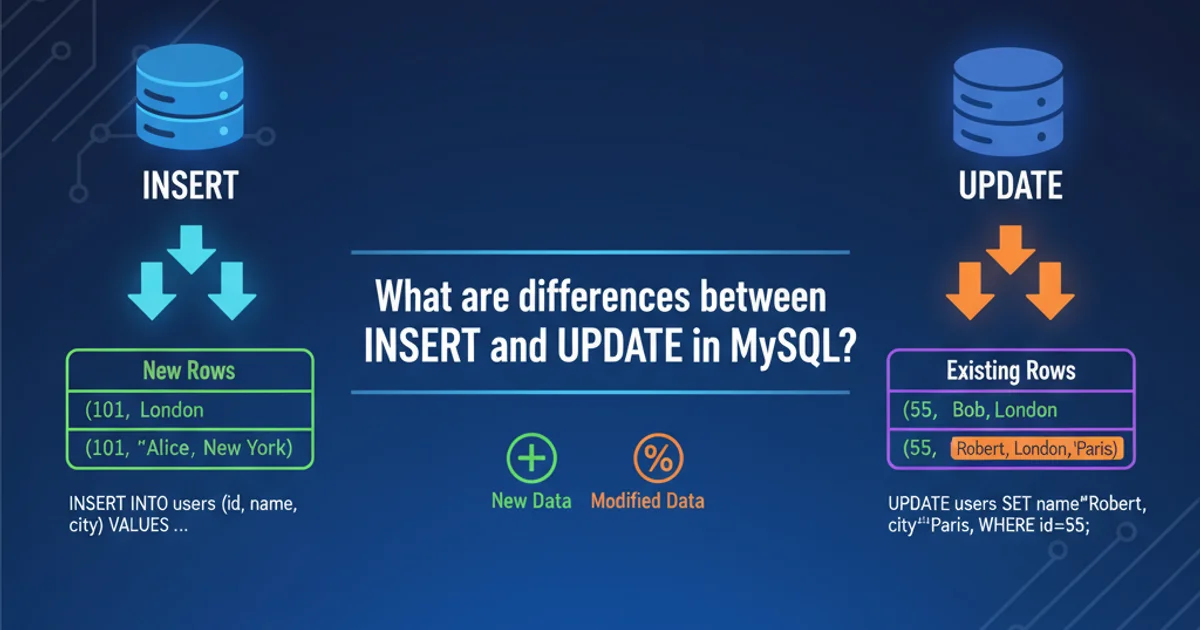LINQ equivalent of foreach for IEnumerable<T>
Categories:
LINQ Equivalent of foreach for IEnumerable

Explore how LINQ can be used to iterate and perform actions on collections, offering alternatives to the traditional foreach loop for IEnumerable<T>.
The foreach loop is a fundamental construct in C# for iterating over collections that implement IEnumerable<T>. While straightforward and widely used, developers often seek LINQ-based alternatives, especially when aiming for a more functional programming style or when chaining operations. This article delves into various LINQ methods that can serve as equivalents to foreach, discussing their use cases, advantages, and potential pitfalls.
Understanding the Need for an Alternative
The primary purpose of foreach is to execute an action for each item in a collection, often involving side effects (e.g., modifying an external variable, printing to console). LINQ, on the other hand, is primarily designed for querying and transforming data without side effects. This distinction is crucial when considering LINQ alternatives. While LINQ offers methods that can produce side effects, it's generally recommended to use them judiciously to maintain the functional purity often associated with LINQ.
flowchart TD
A[Start with IEnumerable<T>] --> B{Need Side Effects?}
B -->|Yes| C[Use foreach loop]
B -->|No| D{Need Transformation/Filtering?}
D -->|Yes| E[Use LINQ Query Methods (Select, Where, etc.)]
D -->|No| F{Need to Perform Action on Each Item?}
F -->|Yes| G[Consider ForEach() Extension (if available) or Select().ToList() then foreach]
F -->|No| H[End]Decision flow for choosing between foreach and LINQ alternatives.
LINQ Methods as foreach Equivalents
While there isn't a direct LINQ method named ForEach that is part of the standard System.Linq.Enumerable class for IEnumerable<T>, several approaches can achieve similar results. The most common ones involve using ToList() or ToArray() followed by the ForEach method available on List<T> or creating a custom extension method.
using System;
using System.Collections.Generic;
using System.Linq;
public static class EnumerableExtensions
{
// Custom ForEach extension method for IEnumerable<T>
public static void ForEach<T>(this IEnumerable<T> source, Action<T> action)
{
if (source == null) throw new ArgumentNullException(nameof(source));
if (action == null) throw new ArgumentNullException(nameof(action));
foreach (T item in source)
{
action(item);
}
}
}
public class LinqForEachExample
{
public static void Main(string[] args)
{
List<int> numbers = new List<int> { 1, 2, 3, 4, 5 };
Console.WriteLine("--- Using traditional foreach ---");
foreach (var num in numbers)
{
Console.WriteLine($"Number: {num}");
}
Console.WriteLine("\n--- Using List<T>.ForEach() ---");
numbers.ForEach(num => Console.WriteLine($"Number: {num}"));
Console.WriteLine("\n--- Using custom IEnumerable<T>.ForEach() extension ---");
IEnumerable<string> names = new List<string> { "Alice", "Bob", "Charlie" };
names.ForEach(name => Console.WriteLine($"Name: {name}"));
Console.WriteLine("\n--- Using Select() with side effect (less recommended) ---");
// This forces enumeration and executes the side effect
var result = numbers.Select(num =>
{
Console.WriteLine($"Processing {num} with Select");
return num * 2; // Still returns a value, but side effect occurs
}).ToList(); // ToList() forces immediate execution
Console.WriteLine("\n--- Using Aggregate() for specific scenarios ---");
string combinedNames = names.Aggregate("", (current, name) => current + name + ", ");
Console.WriteLine($"Combined Names: {combinedNames.TrimEnd(',', ' ')}");
}
}
Select() for side effects, remember that LINQ queries are lazily evaluated. The side effect will only occur when the query is enumerated (e.g., by calling ToList(), ToArray(), Count(), or iterating with foreach). If you don't enumerate, the side effect won't happen.When to Use Which Approach
Choosing the right approach depends on your specific needs:
Traditional
foreach: Best for simple iterations where you need to perform an action on each item and side effects are expected. It's clear, efficient, and doesn't create intermediate collections.List<T>.ForEach(): Convenient when you already have aList<T>or are willing to materialize anIEnumerable<T>into a list usingToList(). It's concise but still involves a side effect.Custom
IEnumerable<T>.ForEach()Extension: Provides the conciseness ofForEach()directly on anyIEnumerable<T>without forcing materialization into aList<T>first. This is often a good compromise if you frequently need this pattern.Select()with Side Effects: Generally discouraged for its primary purpose, as it mixes transformation with side effects, which can make code harder to read and debug. However, it can be used in very specific, well-understood scenarios where the side effect is a secondary concern to the transformation.Aggregate(): Useful when you need to combine all elements into a single result, often involving an accumulation or reduction operation. It's not a directforeachreplacement but can process each item to build a final state.
Select() solely for their side effects without consuming the result. This can lead to unexpected behavior due to lazy evaluation, where the side effect might not occur if the query is never enumerated. If you need side effects, foreach or a dedicated ForEach extension is usually clearer.